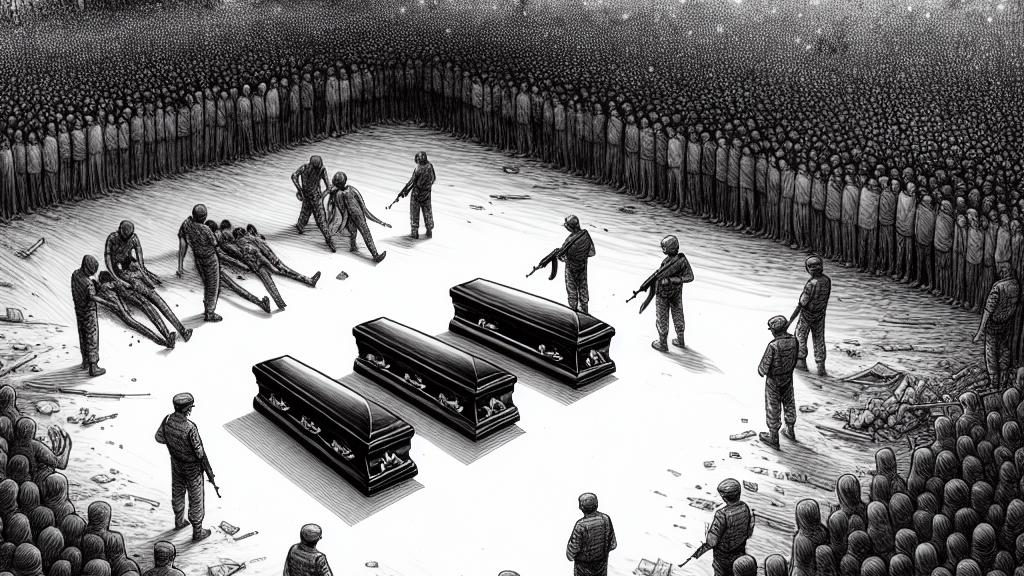Understanding the Return of Israeli Bodies in the Ongoing Gaza Conflict
Overview
- Hamas's return of four Israeli bodies, including a mother and her two children, has deeply affected the nation.
- This heart-wrenching event highlights the intense human tragedy intertwined with the Israel-Gaza conflict.
- Amidst this turmoil, the need for urgent negotiations regarding hostages and ceasefire agreements has never been clearer.

A Heartbreaking Return
On a recent Thursday, the world observed a moment of profound sorrow as Hamas returned the bodies of four Israeli hostages: Shiri Bibas, along with her young children, Kfir and Ariel. Envision the scene: in Gaza, the atmosphere was heavy with grief, as black coffins were displayed during a solemn ceremony that drew thousands of onlookers, many of whom were armed militants. This spectacle drives home a painful truth—such losses are not mere numbers; they represent real families devastated by the relentless violence. The Bibas family’s plight serves as a tragic emblem of the national grief that has crippled countless families since the harrowing events of October 7, 2023, reminding us of stories that need to be told and hearts forever shattered.
The Impact on Negotiations
This tragic exchange could act as a crucial turning point for renewed negotiations, which have been stagnant for too long. Imagine this—a single tragedy igniting the sparks of dialogue that could bridge the deep divides between opposing sides. As the names of those lost echo in the hearts of their families, a sense of urgency surrounds the question: could this tragic event compel leaders to seek peace? The sight of those coffins is more than just a heartbreaking image; it is a call to action that emphasizes the profound human cost of the conflict, urging leaders to engage in discussions that are often avoided. If the emotional narrative of families like the Bibas can resonate in the corridors of power, perhaps it can encourage a move towards understanding, compassion, and ultimately, reconciliation.
The Larger Picture of Hostages and Peace Talks
However, while we mourn the return of these bodies, we must also confront the grim reality faced by the 73 hostages still held captive in Gaza. Picture the anxiety felt by these families, desperately seeking answers and clinging to hope as they navigate through uncertainty. Each hostage story holds deep significance; for instance, the negotiations often intertwine humane gestures with political conditions, emphasizing that human lives cannot be treated as bargaining chips. The emotional turmoil faced by families entrenched in this conflict cannot be ignored; their experiences of anguish drive home the point that amidst political posturing lies an urgent need for humanity. The heart-wrenching tales of those still in captivity reflect the resilience of hope but also the critical need for compassion. To advance peace discussions, we must remember that behind every statistic is a family yearning for reunion and closure—a reminder that empathy is indispensable in the quest for a lasting solution.

Loading...